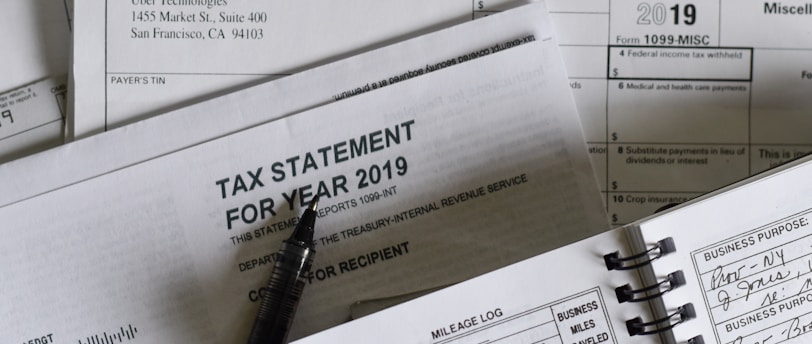Filing an Income Tax Return for an Estate: What You Need to Know
After all the assets of an estate are collected and valued, the probate process continues with everyone’s least favorite step: making tax payments. Although no one enjoys paying taxes, this is a very important step in closing an estate. If you fail to pay the correct taxes, it will cost you a lot of time and money later. You may not be able to close the estate at all without the proper tax payments.
11/29/20243 min read


When managing an estate, one of the most critical—and often overlooked—steps is filing the necessary tax returns. This isn’t just about checking a box; failure to file and pay the correct taxes can lead to delays, penalties, or even prevent the estate from closing. Understanding the tax requirements and deadlines can save you time, money, and frustration.
The Role of the Personal Representative
The personal representative (executor) of the estate is responsible for ensuring that all tax obligations are met. This includes filing:
- The Final Lifetime Individual Income Tax Return: Using Form 1040, this covers the decedent’s income up to their date of death.
- The Fiduciary Income Tax Return: Using Form 1041, this documents income earned by the estate after the date of death, such as rental income, dividends, or interest.
In Minnesota, the personal representative must also file a Minnesota Income Tax Return. This mirrors the federal final return and ensures all state taxes are covered. Depending on the estate’s value, a Minnesota Estate Tax Return may also be required. Estate tax isn’t based on income but on the total value of the estate, so confirming whether the estate meets the filing threshold is essential.
Key Deadlines to Remember
Tax deadlines for estates vary, and missing them can result in penalties or complications:
1. Final Income Tax Return: Due April 15 of the year following the decedent’s death. For instance, if the decedent passed in 2023, the final tax return is due by April 15, 2024.
2. Estate Tax Returns: Must be filed within nine months of the decedent’s death, although extensions may be available.
Timely filing is crucial, not only to avoid penalties but also to claim potential deductions or exemptions that could reduce the estate’s tax burden.
Notifying the IRS*
To alert the IRS of your role as the estate’s fiduciary, you’ll need to submit Form 56: Notice Concerning Fiduciary Relationship. While filing this form isn’t mandatory, it helps ensure that the IRS knows who to contact regarding the estate’s taxes and where to send any potential refunds.
Additionally, the estate will need to obtain an Employer Identification Number (EIN) from the IRS. This EIN is essential for tax filings and setting up an estate bank account. The bank account is used to consolidate estate funds, pay creditors, and distribute assets to heirs or beneficiaries.
Navigating Minnesota’s Specific Requirements
Minnesota’s estate tax thresholds are different from federal requirements. If the total value of the estate exceeds the state threshold, filing an estate tax return is necessary. Estate taxes can be complex, particularly if the decedent owned property in multiple states, which may require additional filings in those states.
For income tax purposes, the personal representative must handle any unfiled returns from prior years, as well as the final returns for the decedent. Acting as the decedent in these filings, the representative ensures all past and current obligations are met.
Why Professional Guidance is Key
Taxes can be overwhelming under normal circumstances, but the complexities of probate taxes are even more daunting. Consulting with an experienced probate attorney or tax professional can save significant time and stress. Professionals can help:
Identify deductions and exemptions to reduce the tax burden.
Ensure all necessary federal and state returns are filed correctly and on time.
Handle intricate issues, such as multi-state property ownership or unfiled prior-year tax returns.
Final Thoughts
Filing taxes for an estate may not be the most exciting part of probate, but it’s a critical step. With proper organization and professional help, you can navigate this process smoothly. By staying on top of deadlines, submitting accurate returns, and addressing every detail, you’ll be one step closer to closing the estate efficiently and ensuring everything is in order for heirs and beneficiaries.




